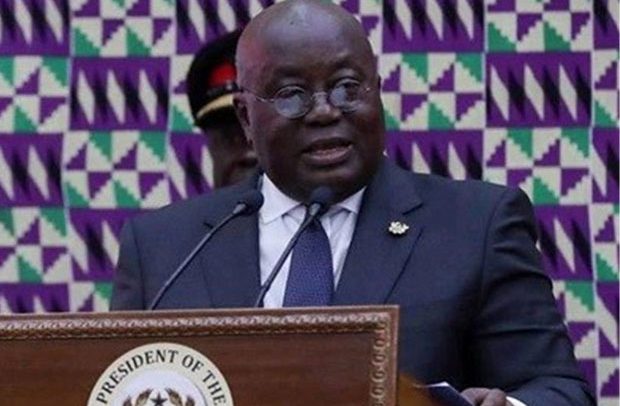President Nana Addo Dankwa Akufo-Addo says his government is waiting with eargernes for the International Monetary Fine (IMF) Staff to present to the IMF Executive Board Ghana’s Programme request for a three billion dollar (US$3 billion) Extended Credit Facility by the end of the month
He expressed optimism that his government will finalise the bailout for the nation with the IMF shortly.
The government talks with the International Monetary Fund have been going since the announcement on July 1, 2022 of its intention to engage the IMF for a funded Programme.
Having reached the Staff Level Agreement on December 12, 2022, after five months of intense negotiations, and completion of most of the prior actions required under the agreement.
President Akufo-Addo delivering his State of the Nation Address said “we are on course for the IMF Staff to present to the IMF Executive Board Ghana’s Programme request for a three billion dollar (US$3 billion) Extended Credit Facility by the end of the month.
“Mr. Speaker, the 3-year IMF Programme, anchored on Government’s Post COVID-19 Programme for Economic Growth (PC-PEG), aims at restoring macroeconomic stability and debt sustainability, whilst protecting the vulnerable. It is a strong reform programme, which relies on frontloaded fiscal measures to increase domestic resource mobilisation and streamline public expenditures to support inclusive growth and enhance social protection.”
The President thanked the House for its support throughout this process, including the passage of key revenue laws.
“However, a few more of these measures, namely Income Tax (Amendment) Bill, Excise Duty & Excise Tax Stamp (Amendment) Bills, as well as the Growth and Sustainability Levy Bill, are outstanding, which need the urgent attention of the House and passage to complete the prior actions. This will put us in readiness for our presentation to the Fund Board, and, more importantly, bolster our domestic revenue mobilisation efforts.
“Mr. Speaker, it is clear that, given the extent of the fiscal and debt sustainability issue we are addressing, fiscal adjustment and structural reforms are not sufficient for restoration of debt sustainability. A critical component of the measures we are implementing to address the current economic crisis is the debt operation, involving both domestic debt and external debt. The debt operation is aimed at returning the country to debt sustainable path by 2028, by reducing the debt-to-GDP ratio on a general classification basis and, in present value terms, from one hundred and three percent (103%) in 2022 to fifty-five percent (55%) by 2028; and reducing the external debt service-to-revenue ratio from twenty-nine percent (29%) in 2022 to eighteen percent (18%) by 2028.”
He indicated that in order to achieve these goals, the decision was taken to execute a Domestic Debt Exchange Programme (DDEP), in addition to fiscal adjustment, external debt operation and structural reforms.
“The participation rate of eighty-five percent (85%), representing tendered bonds of eighty-three billion cedis (GH¢83 billion) out of the total eligible bonds of ninety-seven point seven billion cedis (GH¢97,749,624,691), constitutes significant success for the DDE Programme. The eighty-three billion cedis (GH¢83 billion) bonds that were successfully tendered, also, represents sixty-four percent (64%) of the outstanding domestic debt stock of one hundred and thirty billion cedis (GH¢130 billion) at the end of December 2022, as pension funds have been expressly exempted from the DDEP.”
He seized the opportunity to thank organised labour, pensioners, pension fund managers, the Ghana Association of Banks (GAB), Ghana Securities Industry Association (GSIA), Ghana Insurers Association (GIA), the Individual Bond Holders and Retirees Forum, and all others who have contributed to make the Domestic Debt Exchange Programme a success.”
The President mentioned that his government remain resolute in the vision to restore macroeconomic stability and promote inclusive growth.
By Vincent Kubi


